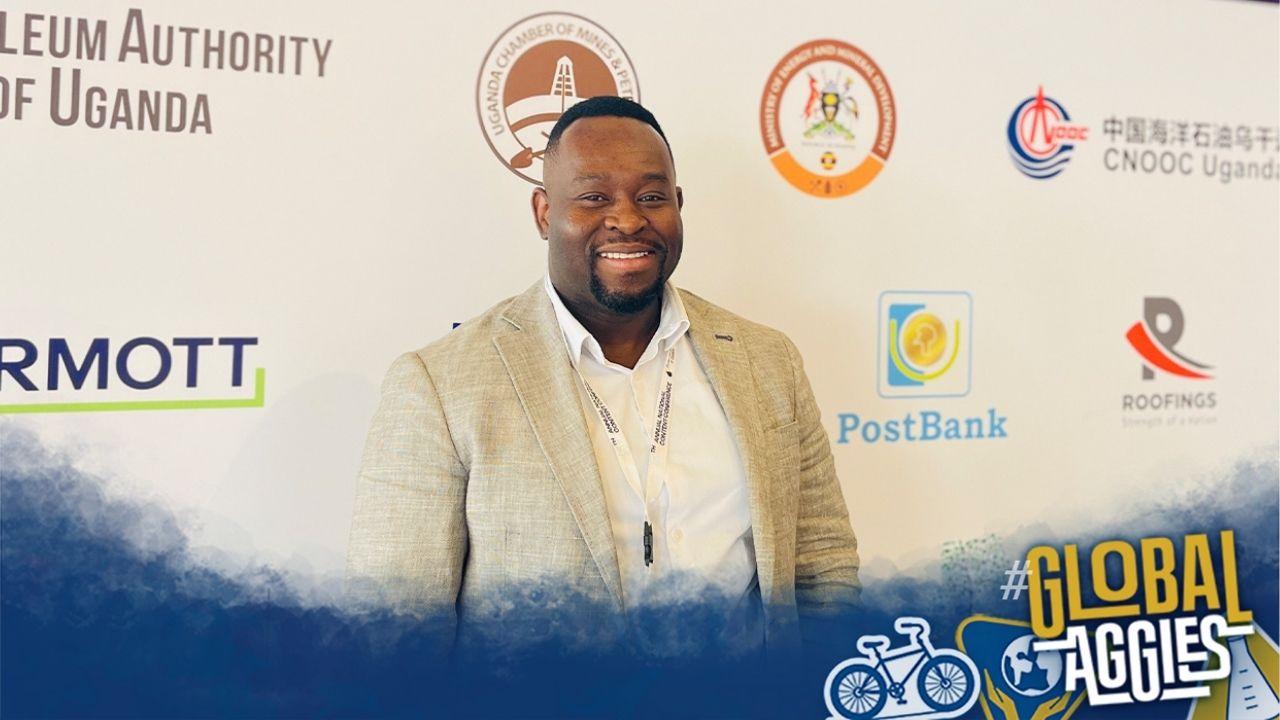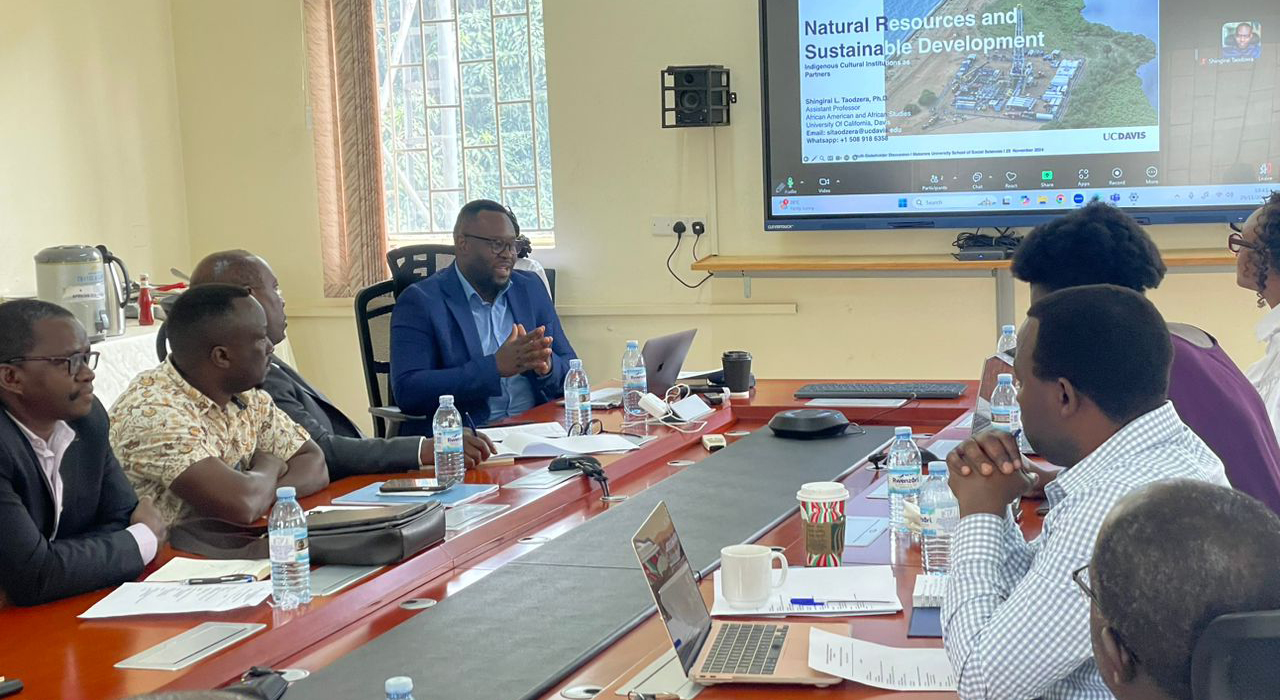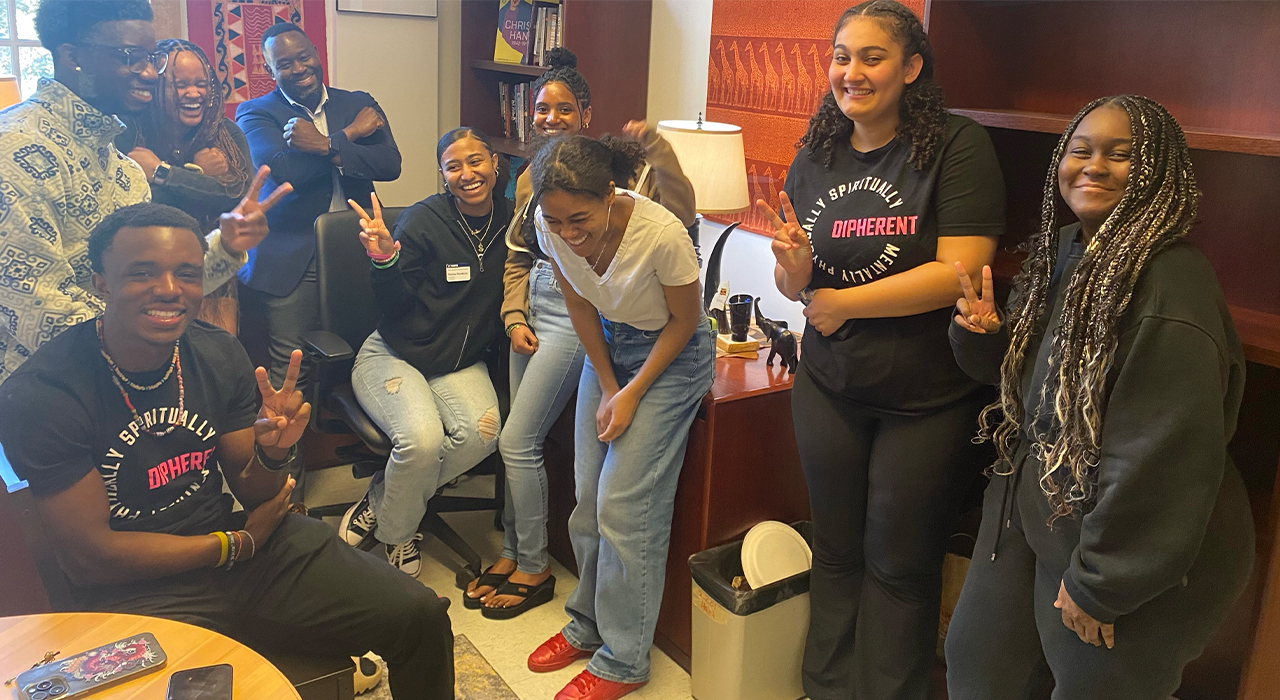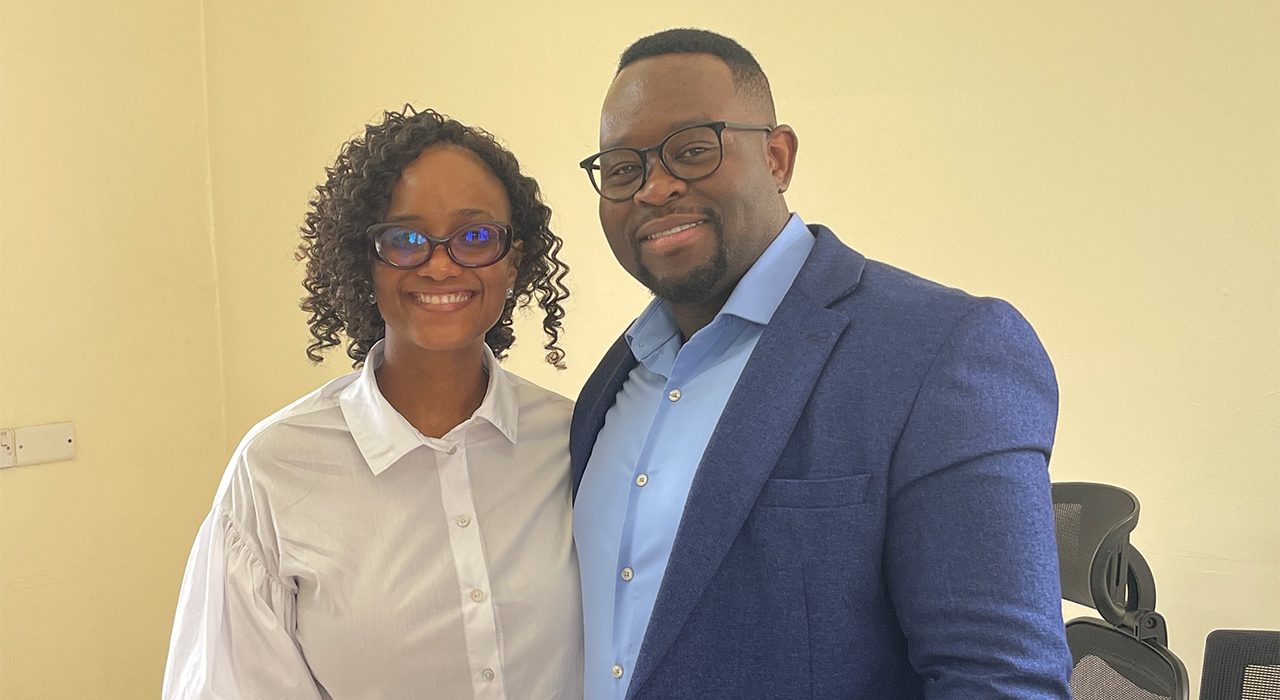
Global Aggies: Building on a Global Education
Growing up in a remote area of rural Zimbabwe, Shingirai Taodzera witnessed firsthand the importance of education as he observed his parents embody the value of education in their work as schoolteachers. “Through my parents, I learned the value of education as a tool for unlocking potential,” he said.
Taodzera’s own educational path took that value a step further and serves as living proof of the benefit of global education, a lesson he has paid forward to Aggies during his time at UC Davis as an assistant professor in African American and African Studies.
Recovering from Instability and Persevering
Taodzera began his undergraduate studies at the University of Zimbabwe (UZ) in 2006, but his world was upended in August 2008 when the university became non-operational due to political reasons (note: UZ has since reopened). At the time, Taodzera was participating in the semester-long International Human Rights Exchange, a program jointly run by Bard College in New York and the University of the Witwatersrand (Wits) in Johannesburg, South Africa. Stranded after returning home to Zimbabwe in December 2008, he and his peers at the UZ faced difficult choices about their futures.
“My perseverance in handling the aftermath [of the closure] reflected my faith in the transformative power of global education; I invested all my efforts during this period towards getting back into school in South Africa,” said Taodzera.
After two years of uncertainty, he managed to secure the first—and only —work-study scholarship from the International Human Rights Exchange Program and became a full-time undergraduate student at Wits.
Taodzera was also inducted into the prestigious Mellon Mays Undergraduate Fellowship (MMUF), through which he visited the U.S. for the first time in 2012 for a summer program at Bowdoin College in Maine. The MMUF, which aims to transform higher education by supporting students from underrepresented groups in attaining PhDs and pursuing academic careers, also cemented Taodzera’s desire to pursue a career in higher education.
After completing his studies in South Africa, Taodzera ventured to Canada to pursue a master’s degree at Dalhousie University and later a Ph.D. at the University of Ottawa, supported by generous funding from the Southern African Student Education Program and the Ontario Trillium Scholarship, respectively. Pre- and postdoctoral fellowships subsequently led him to Wellesley College in Massachusetts. Today, he is a faculty member in the Department of African American and African Studies here at UC Davis.

Focus on Africa
Although his educational and career pursuits have taken him halfway across the globe, 10,000 miles from home, Africa is front and center in his professional work, addressing pertinent questions regarding efforts to transform human livelihoods through renewable and non-renewable natural resources, especially land, forestry, oil and minerals.
Taodzera describes his research as “the intersection of international political economy, natural resource governance, and development in Africa.” This work includes a planned book about the attainment of community ownership over land, oil and mineral resources through indigenous kingdoms in East and Southern Africa. He also has research interests in understanding the politics of state-building in Africa following the end of colonial rule, as well as in Human Rights promotion and Africa’s international relations.
Grants in Action
His work has received financial support from various sources, including UC Davis Global Affairs.
“The Grants provided much-needed financial resources for my colleagues and I’s research projects, which have a fundamentally global focus,” Taodzera explained. “For example, they funded my colleague, Dr. Benjamin Weber and my impactful work on global reparations studies, which focused on understanding the discourse and experiences aimed at achieving reparations and repair in the Caribbean, Europe, and Africa, and how it compares to our experiences here in the United States.
This project, which included conference panels and a global symposium, followed the release of the historic California Reparations Report [published in 2023]. It included the development of a new Black Studies curriculum in California high schools and the creation of a popular upper-division undergraduate course, The Black Human Rights Tradition, which is the first of its kind at UC Davis.”

Taodzera is also utilizing the funds from a Global Affairs Seed Grant for International Activities to develop UC Davis’s first Human Rights Study Abroad program in South Africa, which was recently approved in May following an extensive review process.
Like Taodzera, recipients of Global Affairs’ Seed Grants for International Activities projects foster long-term international research collaborations, create innovations in internationalizing the curriculum in support of the Global Education for All initiative, and grow or build global partnerships. Since 2001, the program has supported more than 290 diverse projects, resulting in significant international partnerships, research outcomes and external funding.
Furthermore, Taodzera traveled to Uganda with the support of an SDG Grant to host a multi-stakeholder workshop at Makerere University in Kampala in November 2024. The workshop explored ways in which resource-rich rural communities in Uganda and across Africa can achieve sustainable development through the ownership and prudent management of resources found on their land. It brought together presenters and participants from universities, government agencies, oil companies, kingdoms, and civic society, discussing best practices for community governance of natural resources.
The workshop also gave birth to an edited book volume project, which is currently in progress. Through this project, Taodzera aimed to empower communities to take responsibility for the resources around them by making informed decisions about attaining ownership and utilizing resource wealth to improve human livelihoods, drawing on indigenous African philosophies, value systems, and institutions.
“This is particularly important in the current era of intensified exploration of minerals and oil throughout the continent that is dominated by multinational corporations, which has frequently led to negative impacts on the environment and human livelihoods in resource-producing regions.”
Global Affairs offers Grants for Advancing Sustainable Development Goals as part of a partnership with Grand Challenges, Sustainability and the Office of Diversity, Equity, and Inclusion. These team-focused grants fund global and multidisciplinary programs that enhance UC Davis’ connections to the UN Sustainable Development Goals (SDGs).
A set of broad yet ambitious goals that address the universal need for sustainable development, the SDGs were adopted by all UN member states in 2015 as part of the 2030 Agenda for Sustainable Development. The 17 goals—such as ending hunger, ensuring access to clean water, and combating climate change—provide a common global framework for achieving sustainable development across economic, social and environmental dimensions.

Making Global Connections
While Taodzera’s work can take him far from UC Davis, the connections are never lost. For example, a familiar face was among participants at Taodzera’s workshop in Uganda: UC Davis Mandela Washington Fellowship alumna and electrical engineer Natasha Asaba. During the summer of 2024, Asaba and her cohort of more than 20 young professionals from Sub-Saharan African countries spent six weeks at UC Davis.
Taodzera is a frequent partner of the campus program, often serving as a speaker or moderator, and met Asaba during her fellowship, extending an invitation to her for his workshop in her home country of Uganda.
These professional connections made through the Mandela Washington Fellowship and other programs, such as the Hubert H. Humphrey Fellowship, fuel continued collaboration on projects and the exchange of information and ideas that can benefit California, the United States and the world.
“Meeting the Fellows is always an invaluable learning experience, as they generously share fascinating insights into what’s happening across the continent through their work and lives in general,” said Taodzera.
The impact doesn’t end there.
“I have invited a couple of the Fellows to give guest lectures in my classes, which greatly inspired our students and enhanced their global learning experience.”
Just as his parents shared their value of education with him, today, Taodzera is passing along his value of a global education to his students. Creating opportunities for his students to find inspiration, connect with people halfway across the world, and get a little closer to reaching their full potential.